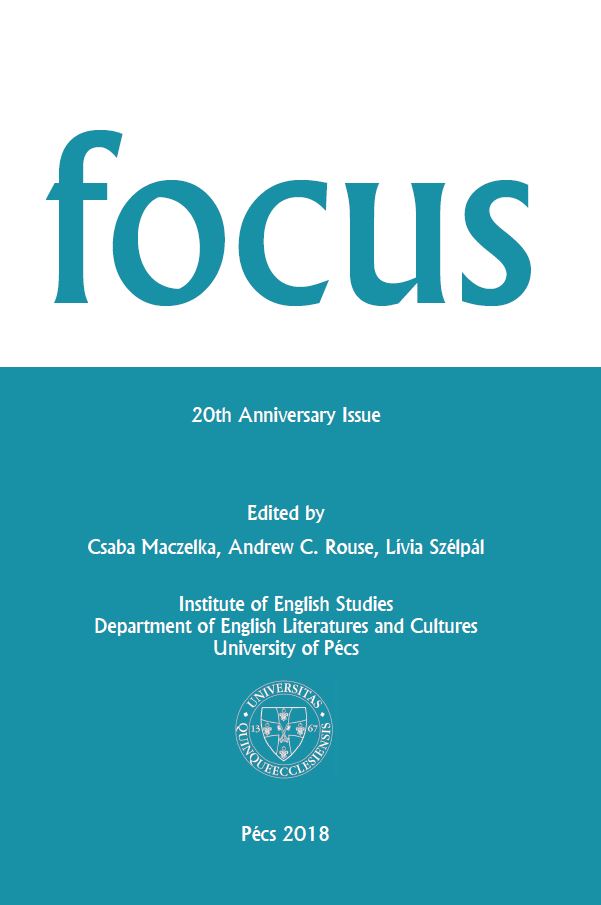The Resurrection of the Dramatic Character
Delgado-García, Cristina. Rethinking Character in Contemporary British Theatre: Aesthetics, Politics, Subjectivity. Berlin/Boston: Walter de Gruyter GmbH, 2015. 224 pages. e-ISBN 978-3- 11-033391-6.
DOI:
https://doi.org/10.15170/Focus.11.2018.10.145-149Abstract
For centuries, the character in drama was considered to be the backbone of works for the stage, until the appearance of a wide-scale subversive experimentation with it in postmodern theatre and performance. The writing of Rethinking Character in Contemporary British Theatre was prompted by the recent publication of books and studies that seriously question the presence and dramaturgical role of character in view of the brand-new developments within the genre. Cristina Delgado-García’s point of departure is that the dismissal of dramatic character in this bulk of theoretical literature can be challenged on the grounds that most theorists look at the term “character” in inconsistent ways, their methodology being problematic and their concept of subjectivity too narrow (XI). Surveying the prescriptive considerations about character, Delgado-García posits the hypothesis that by redefining “character” a new, workable approach to investigating certain puzzling character formations in the postmodern British theatre can be achieved (XII). She assumes that “the character cannot be reduced to the impersonating work of the actor” (8) but other aspects of the dramaturgy also contribute to its fictional existence. Contemporary British playwriting, the author continues, exposes “a discontent with ideas of subjectivity formulated around a solid idea” (11). After clarifying its own theoretical positions the study includes the analysis of four British playtexts by major playwrights as well as their performances from the late 1990s to the mid-2000s.Through these analyses, Delgado-García intends to verify “a widening of what character and subjectivity may mean ... [and] begin to undo the hermeneutical stranglehold that liberal-humanism has placed on our examination of theatre’s aesthetic and political engagements with human ontology” (22). Indeed, it is a both intriguing and promising introduction to what follows in the book.
Downloads
Published
How to Cite
Issue
Section
License

This work is licensed under a Creative Commons Attribution-NonCommercial-NoDerivatives 4.0 International License.
FOCUS: Papers in English Literary and Cultural Studies follows the principles laid down by Creative Commons, which provides guarantees for the Author’s copyright while also ensuring that intellectual properties are made available for the wider public in a digital form. All papers submitted to the journal apply the following licence conditions (indicated on the journal’s website as well as in individual publications):
“© This work is licensed under a Creative Commons Attribution-NonCommercial-NoDerivatives 4.0 International License.”
You are free to:
- Share, copy and redistribute the material included in the journal in any medium or format under the following terms:
- Attribution — You must give appropriate credit to the Author, and indicate the original place of publication [FOCUS: Papers in English Literary and Cultural Studies, Issue nr., page numbers.].
- NonCommercial — You may not use the material for commercial purposes.
- NoDerivatives — You are not allowed to remix, transform, or build upon the material.
- The above conditions must always be indicated if the journal material is distributed in any form.
- The above conditions must always be met, unless a written permission signed by the Author and the Editor-in-Chief states otherwise.

